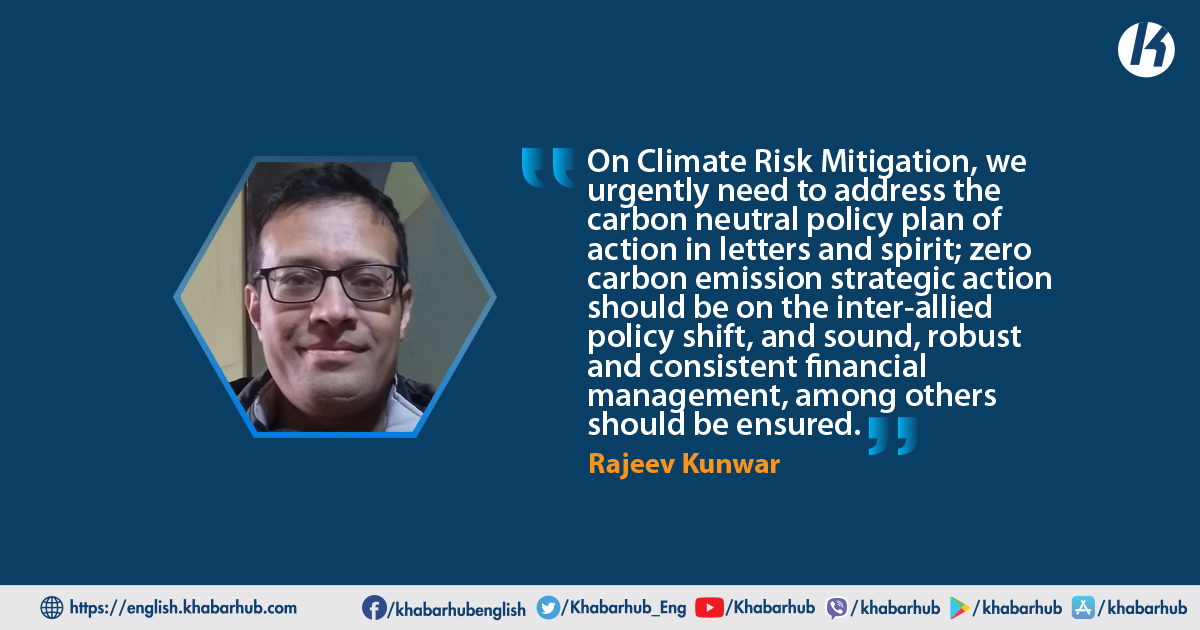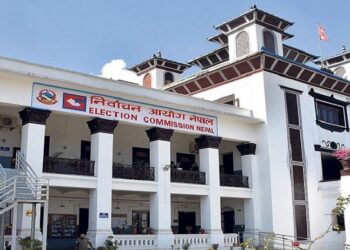In March 2018 the Paris Peace Forum Association was created. In its first edition Paris Call for Trust and Security in Cyberspace, the Business for Inclusive Growth condition, International Declaration on Information and Democracy were the core issues and thematic interests.
Similarly, in its second edition in November 2019, it broached upon the Meeting of the Alliance for Multilateral Observatory of Civic Space, the Foreign Policy Peace Game on Climate and refugees, etc.
Likewise, in its third edition in November 2020, it covered areas of a combined $500 Million pledge to COVAX for COVID 19 vaccines and the Finance in Common Summit with all public development banks towards a new consensus on principles of the post-COVID world.
This fourth edition on November 11-13, 2021 which I have participated in recently and virtually was termed a hybrid edition focusing on the global governance of health inclusive recovery, and using the momentum and lessons learned to better attend the agenda of global governance.
Why is this forum created? Its rationale is of much importance on the Peace Treaty of Versailles in Paris Conference that marked the centennial of the end of the First Great War (1914-1918) in 2018.
So peace is of prime importance to keep at bay conflict or belligerency, a fortress of peace is built in the mind as a motto of UNESCO headquartered in Paris.
The world today requires a collective action open to seeking to develop coordination, rules and capacities that answer global problems by incubating initiatives.
Forum’s vision is to find cooperative solutions to global problems to grapple with the challenges without borders for example climate change, terrorism, migration, cyber security, etc.
There is an ambition gap on global goods like climate, the governance of climate risks, focus on biodiversity and oceans, and the governance of digital space, cyber security (the Paris Call), AI ethics, and the Digital Bill of Rights Initiative, space sustainability.
On the backdrop of the states of the world getting possessive and introverted at times, we are in dire need to get policy solutions at the international level.
Forum designers hold a view that the world is not going in the right direction when states are competing severely for its advantage while political populism threatens liberal democracy and its inter-allied institutions, and collective action is missing to meet those threats and adversity.
Global public policymakers observe that democratic spaces are contracting and economic and financial inequality is on the rise.
Defense expenditure is soaring and international norms are disregarded. The internet jungle has become conducive for misinformation, counterfeits data and disinformation.
While international justice is an open-ended question and global warming is heating further our atmospheric system.
These situations of the advent of unpeace pose danger to sustaining peace. When effective global governance underpins peace it can reduce international tensions, strategic anxiety and security dilemma.
Forum’s mission is to contribute to bridge the governance gap, advance concrete solutions where it is devoid of and forge a concert of stakeholders, support, improve and complement multilateral institutions, involve multi-actor participation and underline project-oriented initiatives.
This is an event to mobilize resources, set up ventures and start up new normative or organizational instruments to directly impact global governance solutions.
It is a space for networking, a place for dialogue and cooperation, bilateral discussions and mediation.
More than a conference, this annual event is also a congress, an exhibition, and a summit structured around three complementary spaces – the spaces for solutions, the debate agenda, and the space for innovation.
Current Talking
At present when the world is fighting to combat COVID 19 Pandemic and its after-effects on economic and financial damage, it demands acutely global cooperation and partnerships to foster fraternity to meet this challenge.
There are gaps to address this danger and revive making the world better. There is an action gap to respond to the pandemic and on economic recovery.
Combining the best of 2019 and 2020, Forum’s 4th Version is a unique hybrid edition of in-person participation and a full online experience on the digital platform.
In this matter, global governance of health should enhance to prepare for a pandemic, the crucial One Health approach, remove restrictions imposed on civil societies and women’s rights during this global public health adversity.
There is an ambition gap on global goods like climate, the governance of climate risks, focus on biodiversity and oceans, and the governance of digital space, cyber security (the Paris Call), AI ethics, and the Digital Bill of Rights Initiative, space sustainability.
Similarly, there is the North-South solidarity gap, divide on vaccines, debt and climate, South-South Cooperation. This undermines the joint resolution of global problems.
The inclusion gap covers the Generation Equality Forum, the growing gap between elites and the general public. The elite gap and gender gap create threats to widen division in societies and exclude many in mainstream processes of the political public sphere.
In November 2020, the Forum contributed to combating the pandemic by boosting vaccines financing and distribution, convening public development banks for a greener recovery, and putting forward civil society solutions to the crisis.
In November 2021, the Fourth Version of the Forum focused on spurring a more concrete and inclusive recovery by addressing the various gaps in global governance, offering initiatives to redress the global commons, and posturing new principles of action for the post-COVID world.
Combining the best of 2019 and 2020, Forum’s 4th Version is a unique hybrid edition of in-person participation and a full online experience on the digital platform.
It convened heads of state, government, and international organizations (more than 125 took part since 2018) as well as NGOs, foundations, companies and citizens from around the world with special attention to participation from the global South.
After the business of the UN General Assembly, the G-20 summit in Rome (October 30-31) and the climate COP 26 in Glasgow (November 1-12) would complement the outcomes of this unanimous statement process.
There is innovative thinking in the Summit to make this planet peaceful in facets of civilization, culture, and concepts. So that an agenda of a green, clean and habitable world evolves, grows and develops to be realized in a contemporary generation.
The precursor plenary meeting before an official ceremony witnessed the inaugural remarks by the American Vice-President Kamala Harris, the French President Emmanuel Macron, the Bangladeshi Prime Minister Sheikh Hasina and the President of Nigeria Muhammadu Buhari. Mark Leonard, director and co-founder of European Council on Foreign Relations (ECFR) in the said plenary discussion who propounded “The Age of Unpeace” in his latest book, covered the focusing debate subtitled as “preserving international cooperation for a more peaceful future.”
How to contain unpeace and what is the art and science of peaceful state and peaceful transformation of world order?
These are pertinent questions in the context of the world in systemic legitimacy crises, anarchy, or a divided world. Georgian President Ms. Salome Zourabichvili presented her opinion in this session on the dilemma of geopolitics, Europe, Russia and American involvement in balancing power politics in the region, and Georgia’s national interests to reap benefits while managing strategic pressures, anxiety and burden from the Russian sphere of influence. It is democratic power politics, the rule of international law and peace both liberal and democratic can show the pathways of world affairs in this second decade of the New Century.
Similarly, attending a session on the prospects of the Global North and Global South cooperation nexus, and contemporary capitalism that is always at the cusp of reform, conveyed my five-point notes each to Odile Renaud-Basso, the President of the European Bank for Reconstruction and Development (EBRD) and Professor Jeffrey Sachs of Center for Sustainable Development, Columbia University on the topics like climate risk mitigation and reforming capitalism in the impact economy respectively in the following from the international region.
On Climate Risk Mitigation we need to address urgently Carbon neutral policy plan of action in letters and spirit, Zero carbon emission strategic action should be on the inter-allied policy shift, sound, robust and consistent financial management and its backup to Greenpeace policy, green public policy speedy assistance to poor and vulnerable countries like landlocked, least developed and island countries, and Global public policy on climate change control must combat it quickly to commence it in the developing world because it is easier, quicker and relatively faster to replenish the environmental damage.
Likewise, on the issue of Reforming capitalism through the impact economy, we can contemplate on capitalism in its full scale intrinsically grows and develops so that capitalism endures, sustains and reinvents to achieve prosperity, justice and peace to set off a genuine economy, capitalism can prosper well if liberal democracy functions in a framework and pillars of excellent governance wherein liberty, justice and equality are pursued to the hilt, capitalism has a role in economic growth, economic development and innovation in society, the state and the world.
Its constant progress is indispensable in the 21st century, its conceptual practice aligns with free-market economic policy to deliver where it is in dire need and sectoral imperatives particularly in graduating developing status of a country, where there is a challenge to capitalism, and opportunities should be tapped to secure its futures to serve human development and human security.
Finally, there is innovative thinking in the Summit to make this planet peaceful in facets of civilization, culture, and concepts. So that an agenda of a green, clean and habitable world evolves, grows and develops to be realized in a contemporary generation.
(Kunwar is a Doctoral Student of Political Science, Kathmandu, Nepal)









Comment